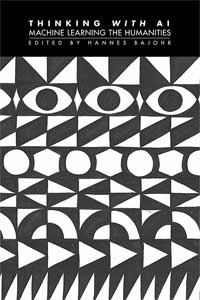Publishing Activism within/without a Toxic University: new open access booklet
 Wednesday, June 11, 2025 at 6:53PM
Wednesday, June 11, 2025 at 6:53PM Announcing the latest title in Open Humanities Press' Combinatorial Books: Gathering Flowers series, which is edited by Janneke Adema, Simon Bowie, Gary Hall and Rebekka Kiesewetter:
Publishing Activism within/without a Toxic University
edited by the Radical Open Access Collective
Co-published by Post Office Press (POP) (https://hcommons.org/members/pop/) and Open Humanities Press, this experimental booklet brings together reflections from Radical Open Access (https://radicaloa.postdigitalcultures.org/) members on publishing activism and its relationship to the neoliberal university. Created as a side project to the Radical Open Access III: From Openness to Social Justice Activism conference (https://radicaloa.postdigitalcultures.org/conferences/radicaloa3/), it explores how publishing can respond to the ongoing crisis in higher education. The authors ask: How can we – as scholars, publishers and activists – engage with a university in perpetual crisis? How can we practice publishing activism within/without a toxic institution?
Inspired by the cadavre exquis technique of the Surrealists, the booklet adapts and (ab)uses this method to foster collaborative, responsive writing. It shows how multiple, potentially conflicting voices can coalesce around a shared crisis and move activist strategies forward in new ways.
It draws from three key ROAC titles published under open licenses: The Undercommons (Minor Compositions: https://www.minorcompositions.info/), Luescher, Klemenčič, and Jowi’s Student Politics in Africa (African Minds: https://www.africanminds.co.za/wp-content/uploads/2016/03/9781928331223_txt.pdf), and Conio’s (ed.) Occupy: A People Yet to Come (Open Humanities Press: https://openhumanitiespress.org/books/download/Conio_2015_Occupy-A-People-Yet-To-Come.pdf). These works, reflecting on protest, activism and student politics, served as a starting point for examining higher education through the lens of social justice publishing activism. The first text in the booklet directly responds to these books, initiating a chain of responses, each written within ten days. Contributors extended the preceding response, engaging with the booklet’s theme and, optionally, the ROAC back-catalogue. Designed by Alex Trencianska, Mia Dawson, and Lisha Wang, the booklet was 'unfolded' during the 3rd Radical Open Access Conference.
Editor Bio
Formed in 2015, the Radical Open Access Collective is a community of scholar-led, not-for-profit presses, journals and other open access projects. Now consisting of more than 80 members, we promote a progressive vision for open publishing in the humanities and social sciences. What we have in common is an understanding of open access as being characterised by a spirit of ongoing creative experimentation. We also share a willingness to subject some of our most established scholarly communication practices to creative critique, together with the institutions that sustain them (the university, the library, the publishing house, and so on). The collective thus offers a radical ‘alternative’ to the conservative versions of open access that are currently being put forward by commercially-oriented presses, funders, and policy makers.
Like all Open Humanities Press titles, Publishing Activism within/without a Toxic University is available open access (and can be downloaded for free):
 Gary Hall | Comments Off |
Gary Hall | Comments Off | 







